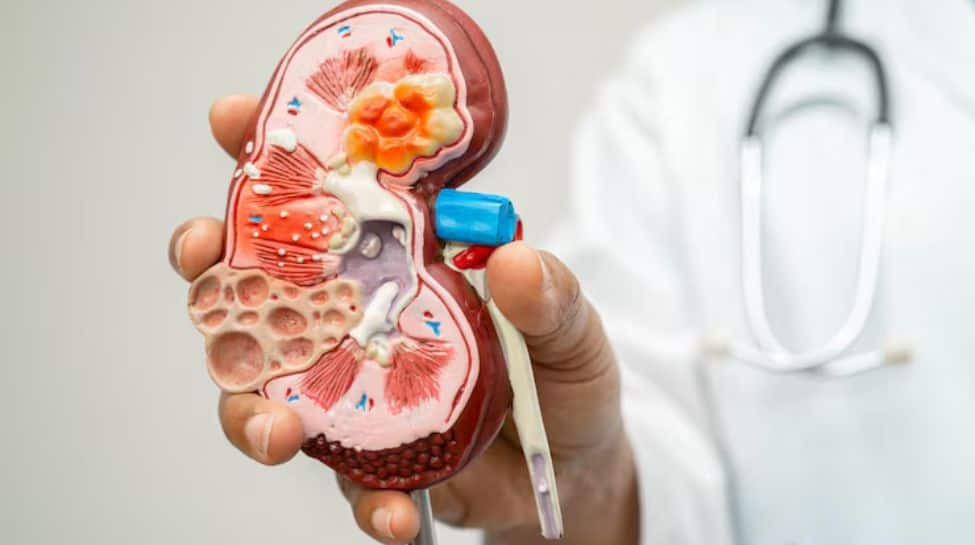Many men prioritize strength and physical fitness, often focusing on muscle building and cardiovascular health. However, a critical aspect of overall well-being, kidney health, often gets overlooked. One of the earliest and most subtle indicators of kidney problems is the presence of protein in the urine, a condition known as proteinuria.
While often asymptomatic in its initial stages, proteinuria can signal underlying kidney damage that, if left unaddressed, can lead to serious health consequences. Dr. Manish Jain, Senior Director, Nephrology, Kidney Transplant, Renal Care, Medanta, Gurugram shares hidden sign of kidney damage that men often overlook.
Understanding the Kidneys and Their Function
The kidneys are vital organs responsible for filtering waste and excess fluid from the blood, which is then excreted as urine. They also play a crucial role in regulating blood pressure, electrolyte balance, and red blood cell production. Healthy kidneys have specialized filtering units called glomeruli, which prevent large molecules like protein from passing into the urine.
Proteinuria: What It Means and Why It Matters
Proteinuria occurs when the glomeruli are damaged, allowing the protein to leak into the urine. Persistently elevated levels are a cause for concern. Proteinuria itself doesn’t usually cause noticeable symptoms in the early stages. This is why it’s often referred to as a “silent” sign of kidney disease. However, as kidney damage progresses, symptoms such as swelling in the ankles and feet (edema), fatigue, foamy urine, and frequent urination, especially at night, may develop.
Why Men Are Particularly Vulnerable
Several factors make men particularly vulnerable to kidney damage and, consequently, proteinuria:
- High Blood Pressure: Men are statistically more likely to develop high blood pressure than women, especially at younger ages. Uncontrolled hypertension is a leading cause of kidney damage.
- Diabetes: Men are also at a higher risk of developing type 2 diabetes, another major contributor to kidney disease. High blood sugar levels can damage the kidneys over time.
- Prostate Issues: Benign prostatic hyperplasia (BPH), or an enlarged prostate, is common in older men. BPH can obstruct urine flow, leading to increased pressure in the kidneys and potential damage.
- Lifestyle Factors: Men are more likely to engage in lifestyle habits that can negatively impact kidney health, such as smoking, excessive alcohol consumption, and diets high in processed foods and red meat.
Ignoring Symptoms delays the diagnosis and treatment of kidney problems.
Detecting Proteinuria: The Importance of Regular Check-ups
The best way to detect proteinuria is through a simple urine test, typically performed as part of a routine physical exam. If protein is detected, further testing, such as spot urine protein creatinine ratio or 24-hour urine collection and blood tests to assess kidney function, may be necessary.
Taking Proactive Steps to Protect Kidney Health
Men can take several proactive steps to protect their kidney health and prevent proteinuria:
- Manage Blood Pressure and Blood Sugar: If you have high blood pressure or diabetes, work closely with your doctor to manage these conditions effectively through medication, diet, and exercise.
- Maintain a Healthy Weight: Obesity increases the risk of both high blood pressure and diabetes, so maintaining a healthy weight is crucial.
- Eat a Balanced Diet: Limit your intake of processed foods, red meat, and sugary drinks. Focus on a diet rich in fruits, vegetables, whole grains, and lean protein.
- Stay Hydrated: Drink plenty of water throughout the day to help your kidneys function properly.
- Limit Alcohol Consumption: Excessive alcohol intake can damage the kidneys.
- Quit Smoking: Smoking damages blood vessels, including those in the kidneys.
- Avoid Overuse of NSAIDs: Nonsteroidal anti-inflammatory drugs (NSAIDs) – pain killers can harm the kidneys if used excessively.
- Get Regular Check-ups: Schedule regular physical exams with your doctor, including a urine test to screen for proteinuria.
Proteinuria is a subtle but significant sign of potential kidney damage that men often overlook. By understanding the risks, recognizing the importance of regular check-ups, and adopting healthy lifestyle habits, men can take proactive steps to protect their kidney health and prevent serious complications down the road. Don’t ignore the silent signs – prioritize your kidney health for a longer, healthier life.

